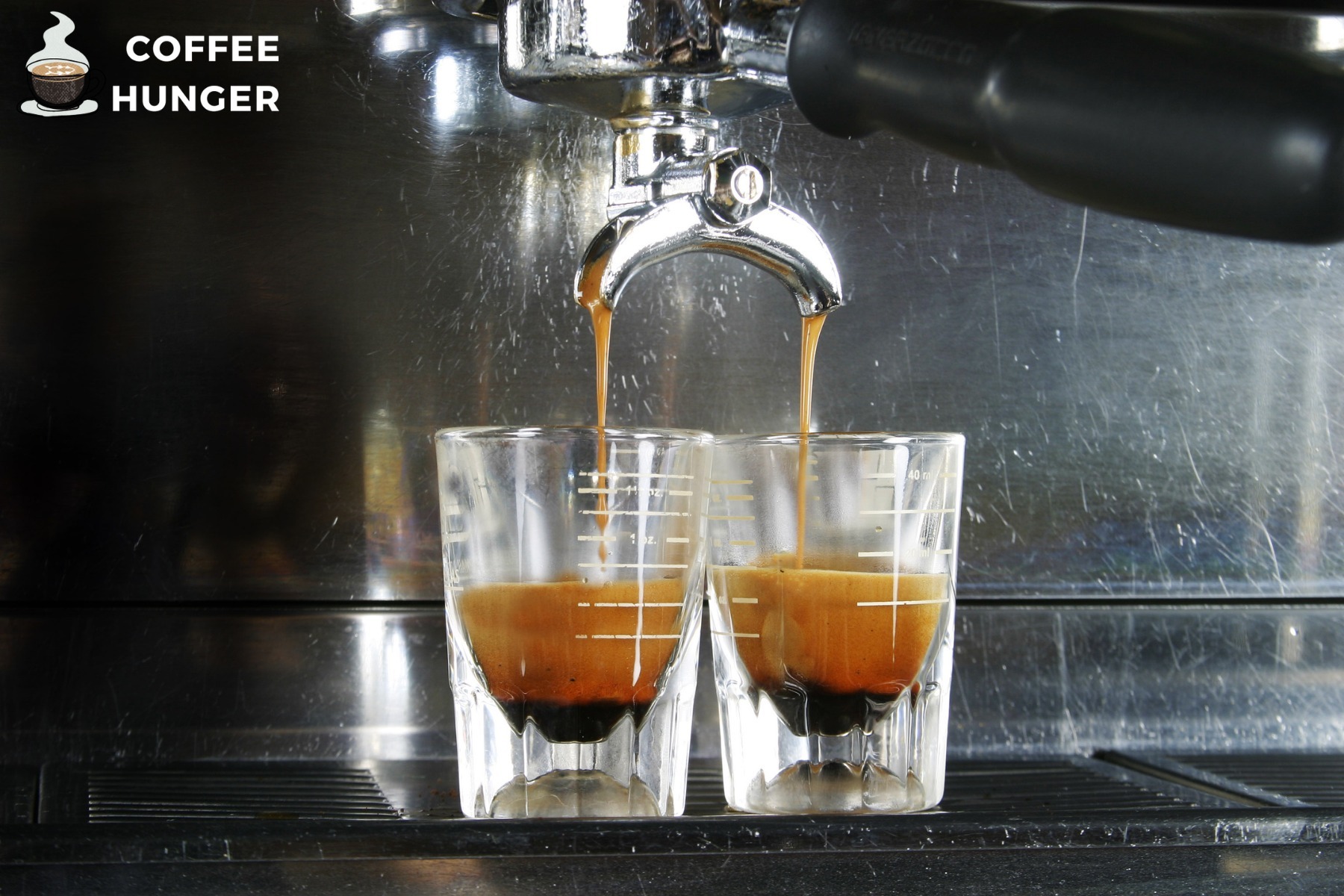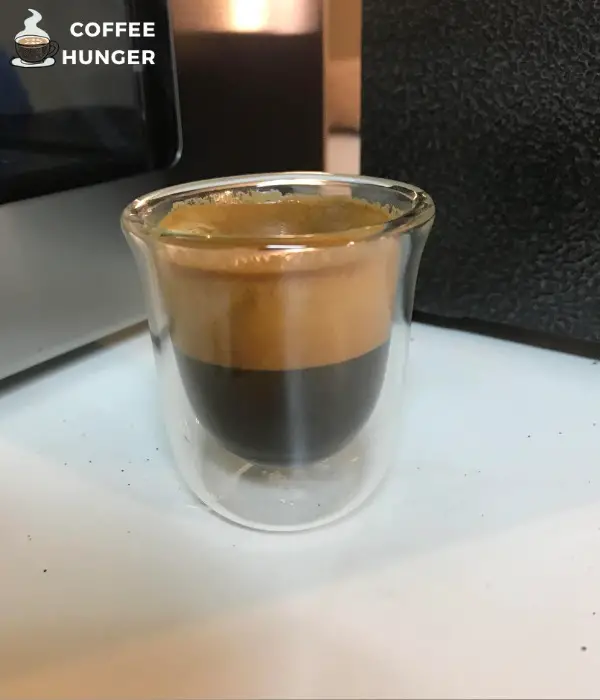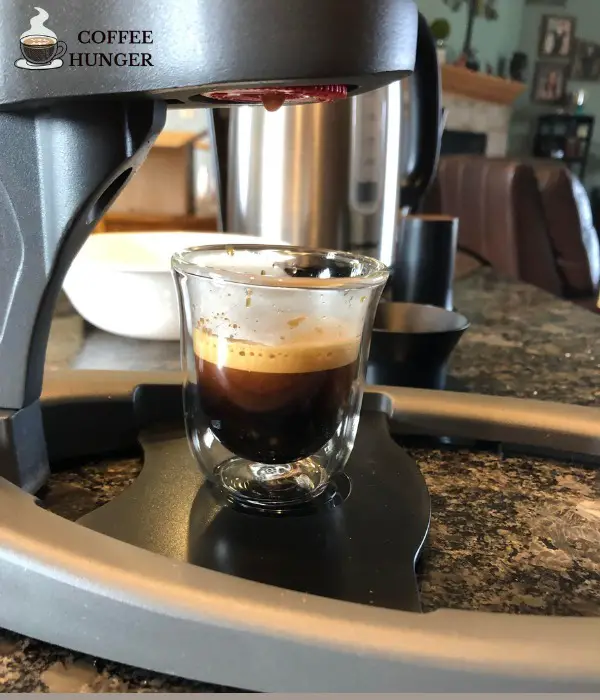If you’re a coffee lover, you’ve probably enjoyed a shot (or two) of espresso at some point. But have you ever wondered just how much caffeine is packed into those tiny cups? It might surprise you to learn that the amount of caffeine in a shot of espresso can vary greatly depending on several factors.
In this article, we’ll dive into the science of caffeine in espresso and explore how much caffeine is in two shots of Shots of Espresso?. So grab a cup of your favorite brew and join us as we explore the world of caffeine in espresso!
What is Caffeine?
Caffeine is a naturally occurring psychoactive substance that is found in certain plants, including coffee beans, tea leaves, cocoa beans, and kola nuts. It is also added to a number of products, such as energy drinks, soft drinks, and over-the-counter medications.
Caffeine is a central nervous system stimulant, which means it has the ability to stimulate the brain and nervous system, leading to increased alertness and energy. It works by blocking the effects of adenosine, a neurotransmitter that promotes sleep and increases the production of other neurotransmitters such as dopamine and norepinephrine, which can improve mood and cognitive function.
Caffeine is also a mild diuretic, meaning it can increase urine production and cause the body to lose fluids. It is important to stay hydrated when consuming caffeine and to be aware of your own tolerance to caffeine. While caffeine can have positive effects on the body, such as increased alertness and improved physical performance, it can also have negative effects if consumed in large amounts, including insomnia, jitters, and increased heart rate.
How Much Caffeine Is in 2 Shots of Espresso?
There are a lot of variances, but a cup of coffee typically has roughly 100 mg of caffeine and a cup of 2 shots of espresso has roughly 150-180 mg of caffeine. While a cup of drip coffee can easily contain 200 milligrams of caffeine, an espresso frequently includes as low as 50 mg per shot.
It can be quite difficult to gauge the amount of caffeine in coffee and espresso drinks. But you need to check to see if that cup contains enough caffeine to get you going while staying under the daily limit of 400 mg.
Espresso is a sort of concentrated coffee beverage created by pressing and heating roasted coffee beans to release their flavor. There are different amounts of caffeine in espresso drinks like lattes and cappuccinos. The amounts of caffeine in various espresso beverages are estimated as follows:
- Single-shot coffee: 29–100 milligrams (often around 75 mg)
- Double-shot espresso (Doppio): 58–185 mg (often around 150 mg)
- Single-shot decaf espresso has roughly 8 mg.
- A double shot (doppio) of decaf espresso has roughly 16 mg.
Factors that Affect Caffeine Content
-
Roast Type:
The roast level of coffee beans can affect the caffeine content of the resulting coffee. Generally, lighter roast levels tend to have higher caffeine levels, while darker roast levels have lower caffeine levels. This is because the roasting process causes the beans to lose moisture and shrink in size, resulting in a higher concentration of caffeine.
-
Grind Size:
The size of the coffee grind can also affect the caffeine content of the coffee. A finer grind size allows for more surface area of the beans to come into contact with the water during the brewing process, resulting in a higher caffeine extraction. A coarser grind size, on the other hand, will have less surface area in contact with the water and will result in a lower caffeine extraction.
-
Brew Time:
The length of time that the coffee is brewed can also impact the caffeine content. A longer brew time will result in a higher caffeine extraction, while a shorter brew time will result in a lower caffeine extraction. This is because caffeine is soluble in water, and the longer the coffee is brewed, the more caffeine will be extracted from the beans.
It is important to note that these factors can interact with each other and affect the caffeine content of the coffee. For example, a finer grind brewed for a longer time will result in a higher caffeine extraction than a coarser grind brewed for a shorter time. Understanding these factors can help you control the caffeine content of your coffee to suit your personal preferences.
Caffeine Content of Two Shots of Espresso
-
Typical Caffeine Content-Range:
The caffeine content of a shot of espresso can vary greatly depending on several factors, including the roast level, grind size, and brew time of the coffee beans, as well as the size of the shot. In general, a single shot of espresso can contain anywhere from 29 to 100 mg of caffeine, with the average being around 75 mg. This means that two shots of espresso can contain a total of 58–185 mg of caffeine, with the average being around 150 mg.
-
Considerations When Consuming Two Shots of Espresso:
It is important to consider your own tolerance to caffeine when consuming two shots of espresso. While the average adult can safely consume up to 400 mg of caffeine per day, individuals can vary in their sensitivity to caffeine. Consuming large amounts of caffeine can lead to negative effects such as insomnia, jitters, and an increased heart rate. It is also important to stay hydrated when consuming caffeine, as it is a mild diuretic. If you are pregnant, nursing, or have any underlying health conditions, it is best to consult with a healthcare professional before consuming caffeine.
Potential Benefits of Caffeine
-
Mental and Physical performance:
Caffeine can have a number of potential benefits for mental and physical performance. It can improve alertness, reduce fatigue, and increase energy levels, making it a popular choice for people looking to boost their performance. Caffeine has also been shown to improve physical performance in activities such as endurance sports and strength training, by increasing the availability of free fatty acids in the bloodstream and decreasing the perception of effort.
-
Cognitive Function:
Caffeine can also have positive effects on cognitive function, such as improving memory, mood, and reaction time. It has been shown to enhance the consolidation of long-term memories and improve task-switching ability, making it a popular choice for students and professionals looking to improve their mental performance.
Potential Risks of Consuming Caffeine
-
Restlessness and Jitters:
Consuming large amounts of caffeine can cause restlessness and jitters, as it stimulates the central nervous system. These symptoms can be uncomfortable and may make it difficult to concentrate or relax.
-
Insomnia and Sleep Disturbances:
Caffeine is a stimulant that can interfere with sleep, especially when consumed in the late afternoon or evening. It can cause insomnia and other sleep disturbances, such as difficulty falling asleep and poor sleep quality.
-
Heart Palpitations and High Blood Pressure:
Caffeine can also have negative effects on heart health, as it can cause heart palpitations and increase blood pressure. This can be especially concerning for people with pre-existing heart conditions or those who are sensitive to caffeine.
Conclusion
In conclusion, caffeine is a naturally occurring substance found in a number of plants and is also added to a variety of products, such as energy drinks and over-the-counter medications. It is a central nervous system stimulant that can improve alertness, reduce fatigue, and enhance cognitive function.
Caffeine can also have positive effects on physical performance, but it is important to consume it in moderation, as consuming large amounts can lead to negative effects such as insomnia, jitters, and increased heart rate. The caffeine content of espresso can vary depending on factors such as roast level, grind size, and brew time, but two shots of espresso can contain an average of around 150 mg of caffeine.
FAQs:
Q1. How much caffeine is in a double shot of espresso?
Ans: A double shot of espresso typically contains around 150 mg of caffeine.
Q2. What factors affect the caffeine content in two shots of espresso?
Ans: Factors that can affect the caffeine content of two shots of espresso include roast level, grind size, and brew time.
Q3. How much caffeine is in 10 shots of espresso?
Ans: Ten shots of espresso would contain an average of around 1500 mg of caffeine.
Q4. Are there any potential risks of consuming caffeine?
Ans: Consuming large amounts of caffeine can have potential risks such as insomnia, jitters, and increased heart rate.
Q5. How many mg of caffeine is in 2 shots of espresso?
Ans: There are approximately 150 mg of caffeine in two shots of espresso.
Q6. How much caffeine is in two shots of blonde espresso?
Ans: The caffeine content of two shots of blonde espresso may vary, but it is generally lower than traditional espresso due to the lighter roast level of the beans.
Q7. How many mg of caffeine is in 4 shots of espresso?
Ans: There are approximately 600 mg of caffeine in 4 shots of espresso.
Q8. Is 7 shots of espresso too much?
Ans: It is generally safe for adults to consume up to 400 mg of caffeine per day, so 7 shots of espresso may be too much for some individuals.
Q9. What factors affect the caffeine content in two shots of espresso?
Ans: Factors that can affect the caffeine content of two shots of espresso include roast level, grind size, and brew time.
Q10. How much caffeine is in a double shot of decaf espresso?
Ans: The caffeine content of a double shot of decaf espresso is typically very low, as the decaffeination process removes most of the caffeine from the beans. However, it is possible that some caffeine may remain in the final product.
Also Read:
Can You Drink Coffee With Retainers?
Does Starbucks have Decaf Iced Coffee?
How to Dissolve Cinnamon in Coffee?



